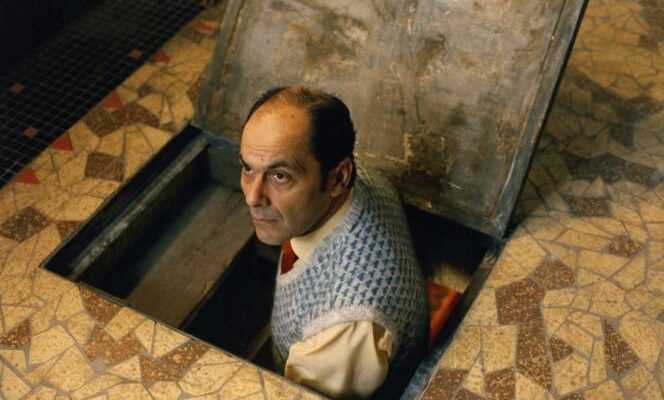FRANCE 3 – FRIDAY JANUARY 14 AT 9:10 P.M. – DOCUMENTARY
As much to say it right away, it is possible that, like the author of these lines, you end up in tears at the end of this beautiful film. Not that Stéphane Benhamou and Erwan Le Gac, its directors, play the melodic card. Nor because we were part of the fan club of the actor who disappeared a year ago, on January 18, 2021 (not sure, moreover, that he would have appreciated that, he who did not like chapels) . But because, accompanying the archive images and excerpts from his extensive filmography, the long-term interviews with relatives – and in particular that of Sam Karmann (the actor, “friend, brother”) – are precious and moving. And that, behind the caricature of the grumpy on duty, Jean-Pierre Bacri was a good and particularly kind man.
“A sweeper and a President of the Republic are the same thing: a man is a man”, his father will tell him one day, postman by day and cinema cashier by night to make ends meet. “Not bad as a rule of thumb, right? », was accustomed to say the actor, born in Algeria in 1951. But, soon, the black feet being asked to go and see elsewhere, the family arrives in Cannes. Jean-Pierre Bacri is 10 years old and bored until his arrival in Paris, where he enters the Cours Simon.
Fascinated by the texts of the British playwright Harold Pinter, he begins to write: it will be Simply, the first piece of which he is the author. He then chained roles that he knew were mediocre, almost stopped everything, met Roger Hanin, then Alexandre Arcady who had him play in The Great Forgiveness (1982). Pied-noir one day but not always, Jean-Pierre Bacri refuses to let himself be locked into this role, especially since he is fiercely anti-communitarian: “I don’t like roots, because you’re never far from bullshit with roots. Because, very quickly, it is one’s own roots that one prefers. »
Against all forms of generalization
On the left, resolutely, Jean-Pierre Bacri refuses any form of injustice and inequality. Any form of generalities, also: “When I hear someone say ‘women’, the subject no longer interests me”, affirms the one whose feminism undoubtedly sharpened after his meeting (“the meeting of my life”) with Agnès Jaoui – in 1985, on the film by Jean-Michel Ribes, The King’s Cake. Together they write Kitchen and outbuildings, who won four Molières in 1992.
While they are perceived as boulevard writers, Alain Resnais, at the suggestion of Pierre Arditi, calls on their talent to write Tuxedo/No Tuxedo (1993). The successes are linked: We know the song (1997) ; A family resemblance (their play, which Cédric Klapisch brought to the screen in 1996); Didier (1997), by Alain Chabat, interviewed here and who salutes “the immense talent and the immense elegance” of the one who will hide his illness for a long time, warning a few relatives on December 26, 2020, as if the party should not be spoiled.
You have 14.9% of this article left to read. The following is for subscribers only.
